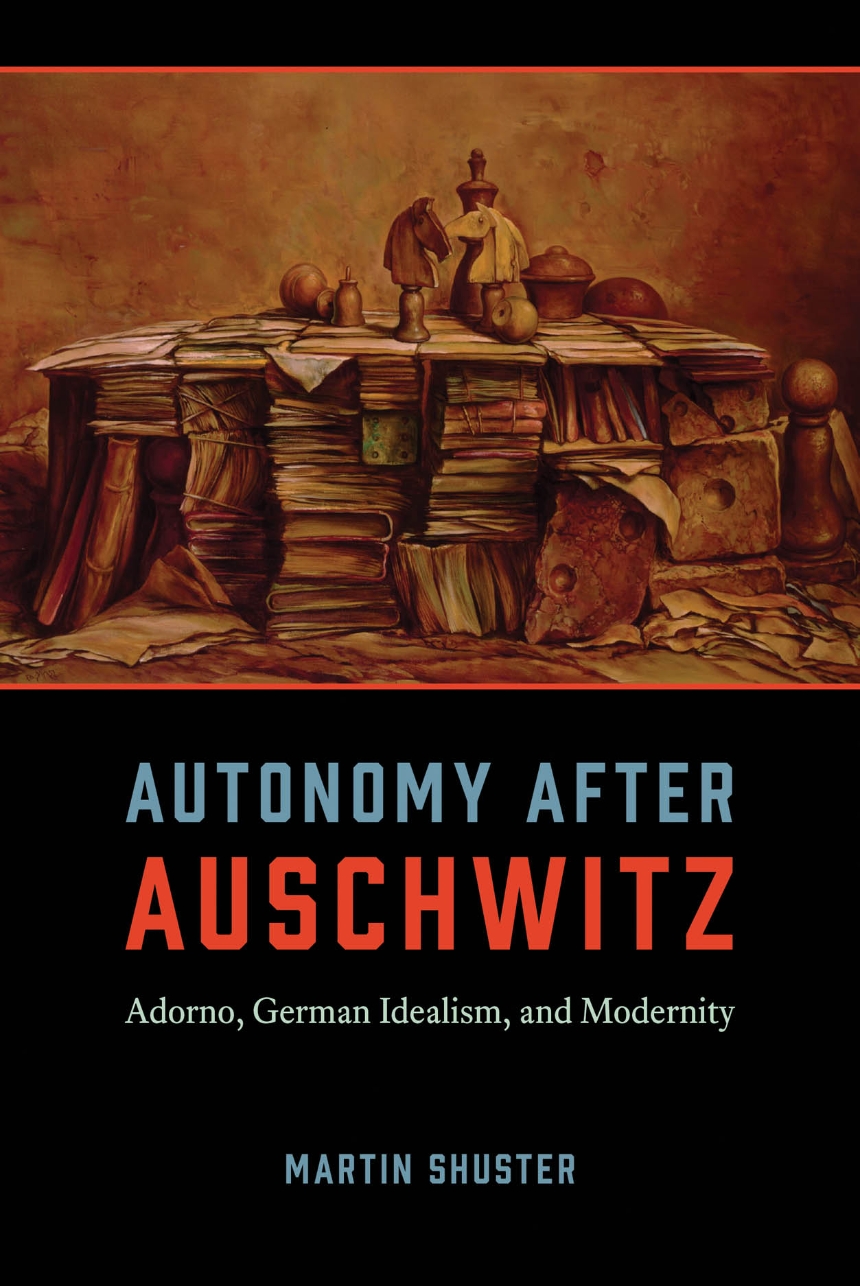Autonomy After Auschwitz
Adorno, German Idealism, and Modernity
Ever since Kant and Hegel, the notion of autonomy—the idea that we are beholden to no law except one we impose upon ourselves—has been considered the truest philosophical expression of human freedom. But could our commitment to autonomy, as Theodor Adorno asked, be related to the extreme evils that we have witnessed in modernity? In Autonomy after Auschwitz, Martin Shuster explores this difficult question with astonishing theoretical acumen, examining the precise ways autonomy can lead us down a path of evil and how it might be prevented from doing so.
Shuster uncovers dangers in the notion of autonomy as it was originally conceived by Kant. Putting Adorno into dialogue with a range of European philosophers, notably Kant, Hegel, Horkheimer, and Habermas—as well as with a variety of contemporary Anglo-American thinkers such as Richard Rorty, Stanley Cavell, John McDowell, and Robert Pippin—he illuminates Adorno’s important revisions to this fraught concept and how his different understanding of autonomous agency, fully articulated, might open up new and positive social and political possibilities. Altogether, Autonomy after Auschwitz is a meditation on modern evil and human agency, one that demonstrates the tremendous ethical stakes at the heart of philosophy.
Shuster uncovers dangers in the notion of autonomy as it was originally conceived by Kant. Putting Adorno into dialogue with a range of European philosophers, notably Kant, Hegel, Horkheimer, and Habermas—as well as with a variety of contemporary Anglo-American thinkers such as Richard Rorty, Stanley Cavell, John McDowell, and Robert Pippin—he illuminates Adorno’s important revisions to this fraught concept and how his different understanding of autonomous agency, fully articulated, might open up new and positive social and political possibilities. Altogether, Autonomy after Auschwitz is a meditation on modern evil and human agency, one that demonstrates the tremendous ethical stakes at the heart of philosophy.
Reviews
Table of Contents
Acknowledgments
Abbreviations
Introduction
1. I Against I: Stressing the Dialectic in the Dialectic of Enlightenment
1. Introduction
2. The Text of the Dialectic of Enlightenment
3. Enlightenment as a Historical Category?
4. The Concept of Enlightenment, and Enlightenment and Myth
5. Images and Signs
6. The Dissolution of Subjectivity
7. The Dialectic of Enlightenment and Kant’s Dialectic of Reason
8. Adorno on Kant’s Dialectic
9. The Necessity of the Dialectic of Enlightenment
10. The Dialectic of Enlightenment and Practical Reason
11. Conclusion
2. Beyond the Bounds of Sense: Kant and the Highest Good
1. Introduction
2. Morality and the Highest Good
3. The Highest Good in the Critique of Pure Reason
4. The Garve Review
5. The Highest Good in the Critique of Practical Reason
6. The Highest Good in the Critique of Judgment
7. Conclusion
3. Adorno’s Negative Dialectic as a Form of Life: Expression, Suffering, and Freedom
1. Introduction
2. Toward an Understanding of the Moral Addendum
3. Natural and Normative: Some Variations
4. The Addendum
5. The Background to Adorno’s Moral Thought
6. Speculative Surplus and Depth as Freedom
7. Freedom and Expression, Happiness and Suffering
8. Expressivity, Language, and Truth
9. Morality and the Nonidentical
10. Conclusion: Kant and Freedom
4. Reflections on Universal Reason: Adorno, Hegel, and the Wounds of Spirit
1. Introduction
2. The Methodology of the Phenomenology of Spirit
3. From the Science of the Experience of Consciousness to the Phenomenology of Spirit
4. Spirit
5. Universal Reason and Forgiveness
6. Conclusion
Model: Conclusion
Works Cited
Index
Abbreviations
Introduction
1. I Against I: Stressing the Dialectic in the Dialectic of Enlightenment
1. Introduction
2. The Text of the Dialectic of Enlightenment
3. Enlightenment as a Historical Category?
4. The Concept of Enlightenment, and Enlightenment and Myth
5. Images and Signs
6. The Dissolution of Subjectivity
7. The Dialectic of Enlightenment and Kant’s Dialectic of Reason
8. Adorno on Kant’s Dialectic
9. The Necessity of the Dialectic of Enlightenment
10. The Dialectic of Enlightenment and Practical Reason
11. Conclusion
2. Beyond the Bounds of Sense: Kant and the Highest Good
1. Introduction
2. Morality and the Highest Good
3. The Highest Good in the Critique of Pure Reason
4. The Garve Review
5. The Highest Good in the Critique of Practical Reason
6. The Highest Good in the Critique of Judgment
7. Conclusion
3. Adorno’s Negative Dialectic as a Form of Life: Expression, Suffering, and Freedom
1. Introduction
2. Toward an Understanding of the Moral Addendum
3. Natural and Normative: Some Variations
4. The Addendum
5. The Background to Adorno’s Moral Thought
6. Speculative Surplus and Depth as Freedom
7. Freedom and Expression, Happiness and Suffering
8. Expressivity, Language, and Truth
9. Morality and the Nonidentical
10. Conclusion: Kant and Freedom
4. Reflections on Universal Reason: Adorno, Hegel, and the Wounds of Spirit
1. Introduction
2. The Methodology of the Phenomenology of Spirit
3. From the Science of the Experience of Consciousness to the Phenomenology of Spirit
4. Spirit
5. Universal Reason and Forgiveness
6. Conclusion
Model: Conclusion
Works Cited
Index
